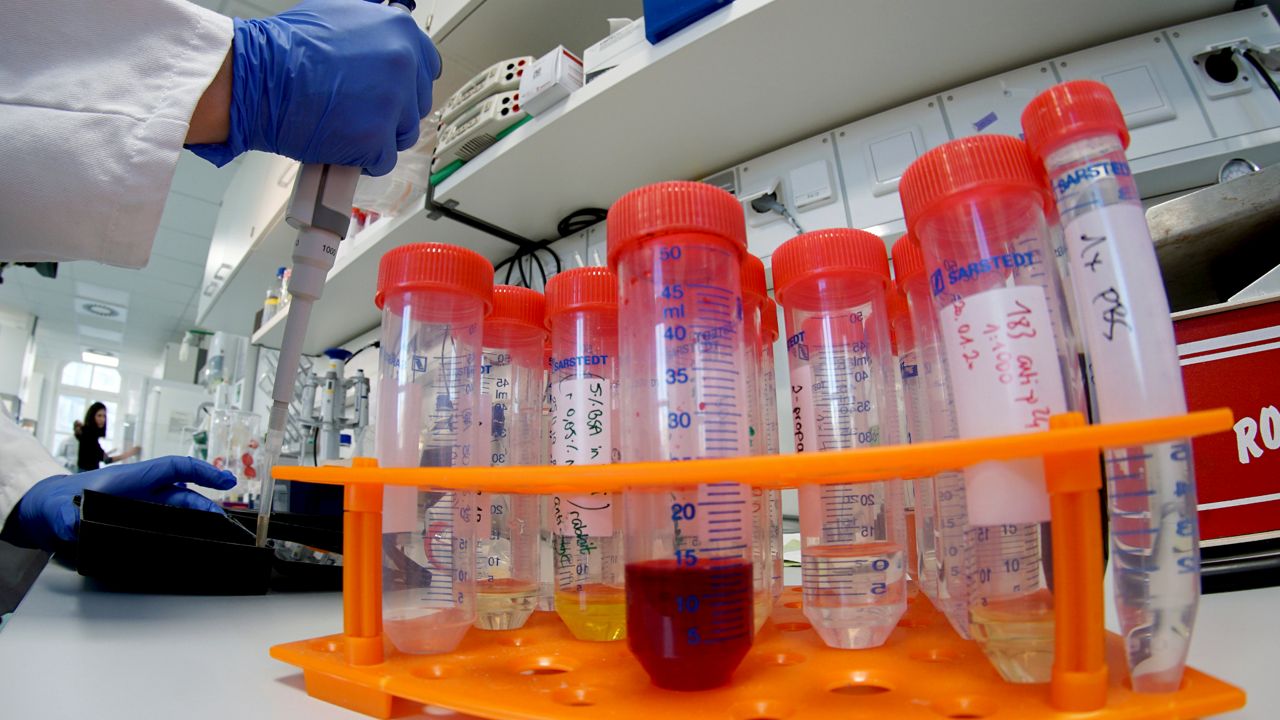NATIONWIDE — The U.S. Department of State has issued an advisory against traveling to China after the first person-to-person transmission of the Wuhan coronavirus in the U.S. was reported Thursday.
The World Health Organization has also declared a global health emergency.
- CDC confirms 1st person-to-person spread of coronavirus in US
- Person is husband of Chicago woman who recently returned from China
- World Health Organization declares public health emergency
- U.S. State Dept. issues China travel advisory
- INTERACTIVE MAP: ▼ Where US cases of the coronavirus are located ▼
- RELATED:
The person who contracted the virus from someone else in the U.S. is the husband of the Chicago woman who recently returned from Wuhan, China, the epicenter of the outbreak, the Centers for Disease Control and Prevention says. The spouse hadn't gone to China.
The Chicago woman returned from China on January 13 and didn't initially feel sick. But last week, she fell ill and went to a hospital and was diagnosed with having the coronavirus. Now, she and her husband are both hospitalized.
The other confirmed U.S. cases of coronavirus are in Arizona, Southern California, and Washington State. Another 92 patients nationwide were under investigation. Health officials have said they expect more cases here.
In South Florida, about 30 students at a high school in Palm Beach Gardens were confined to their homes out of an abundance of caution after attending a conference at Yale University over the weekend. The students had been in close contact with someone who had traveled to China, and a student fell ill. But the person was later diagnosed with the flu.
During an emergency meeting by the World Health Organization, the committee declared a public health emergency "to prevent the spread of the virus and ensure a measured and evidence-based response."
It urged speeding up the development of vaccines, therapeutics, and diagnostics, and combating misinformation about the virus and its effects. The committee also said health officials need to review readiness plans and share data and experiences.
The State Department issued a travel advisory cautioning Americans from traveling to China in response to the outbreak.
"Travelers should be prepared for travel restrictions to be put into effect with little or no advance notice," the advisory said.
Federal officials urge Americans currently in China to consider leaving the country "using commercial means." The State Department has also requested non-essential U.S. personnel to avoid traveling to China.
The virus has killed about 170 people so far and has infected almost 8,000 worldwide. Confirmed cases have been reported in almost two dozen countries. The CDC is discouraging nonessential travel to China at this time.
In Italy, 7,000 people were being held aboard a cruise ship while a couple was being tested for the virus, CNN reported. The Costa Smeralda was docked in a port near Rome, and Italian news reports said that woman and her husband, who are from Hong Kong, were being kept in confinement in the hospital area of the ship.
Russian state media reported that the country was set to close its border with China to prevent its spread. In Hong Kong, a normally busy high-speed rail line connecting the city to the mainland was shuttered.
How does a person become a "patient under investigation"?
Americans shouldn't panic, because there's a pretty narrow path for infection.
The CDC says a patient must have a fever and symptoms of lower respiratory illness; for example, cough or difficulty breathing.
In the past 14 days before symptoms, you must have traveled to Wuhan — which has been effectively locked down by Chinese authorities — or, you came into close contact with a person who is sick and under investigation.
For health care workers, they must have come into contact with a sick laboratory-confirmed coronavirus patient.
The CDC said the criteria serve as guidance, and each patient should be treated on a case-by-case basis.
In comparison with the more common flu, since October, the CDC estimates there have been 8 to 20,000 deaths from influenza in the U.S.



